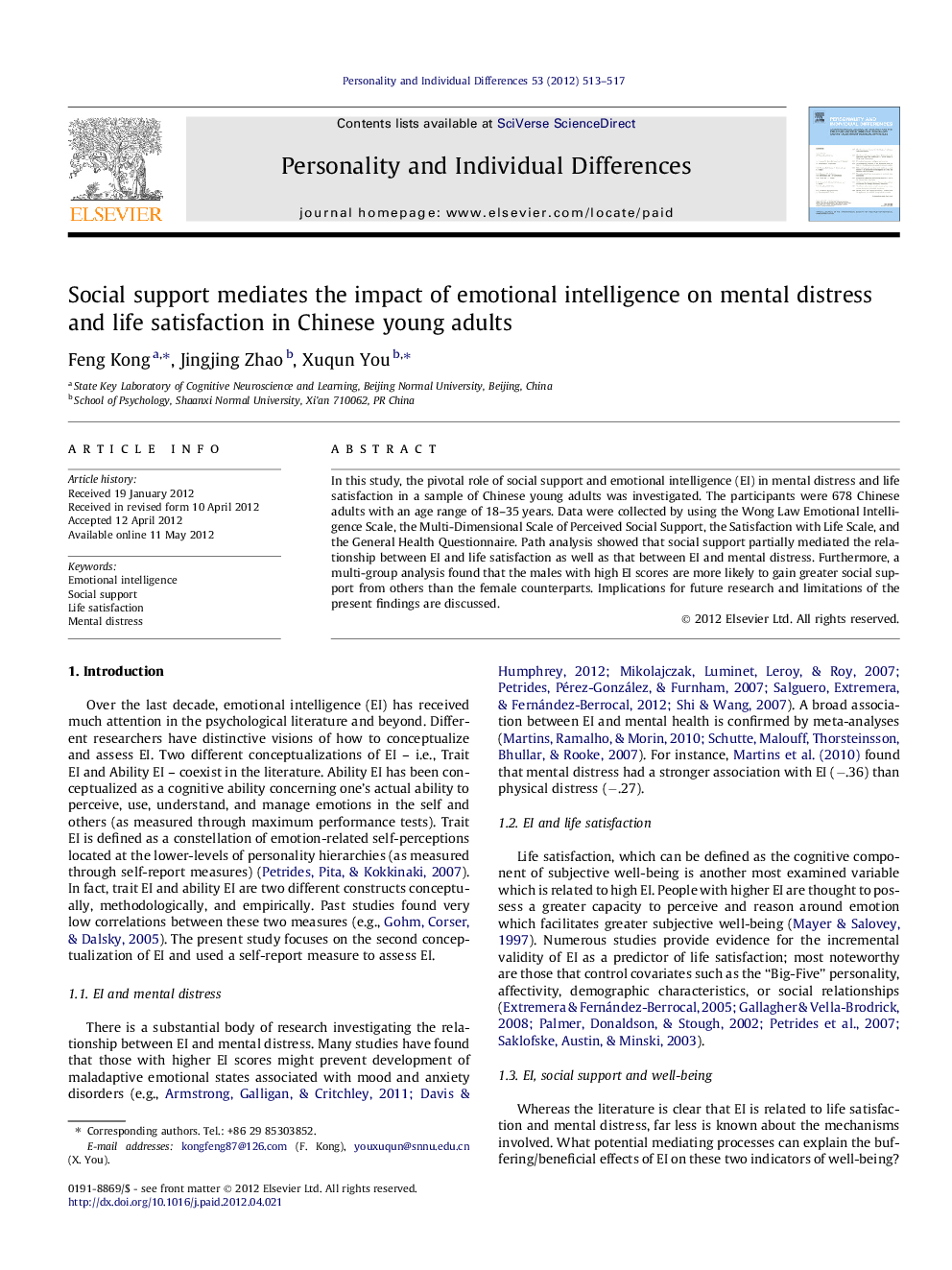ترجمه فارسی عنوان مقاله
حمایت اجتماعی واسطه تاثیر هوش هیجانی بر روی پریشانی های روانی و رضایت از زندگی در بزرگسالان جوان چینی
عنوان انگلیسی
Social support mediates the impact of emotional intelligence on mental distress and life satisfaction in Chinese young adults
| کد مقاله | سال انتشار | تعداد صفحات مقاله انگلیسی |
|---|---|---|
| 37618 | 2012 | 5 صفحه PDF |
منبع

Publisher : Elsevier - Science Direct (الزویر - ساینس دایرکت)
Journal : Personality and Individual Differences, Volume 53, Issue 4, September 2012, Pages 513–517
ترجمه کلمات کلیدی
هوش هیجانی - پشتیبانی اجتماعی - رضایت از زندگی - افسردگی
کلمات کلیدی انگلیسی
Emotional intelligence; Social support; Life satisfaction; Mental distress

